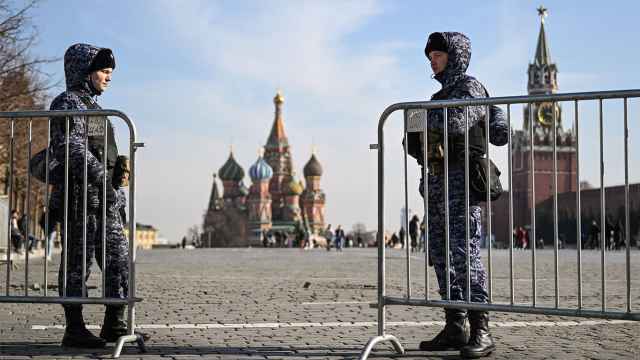Ukraine expects to pay a "much lower" price for natural gas imported from Russia next year, First Deputy Prime Minister Andriy Klyuev said.
"I assure you this is going to be much lower than the current price," Klyuev told lawmakers Friday in Kiev. The two countries are negotiating over a new contract or changes to the existing agreement, he added.
The country expects gas talks with Russia to end this month, Klyuev said, the Interfax-Ukraine news agency reported Friday.
Ukraine is seeking to reduce the price it pays for gas and slash imports to 27 billion cubic meters a year from an estimated 40 billion in 2011. Should price talks with Russia fail, the government will raise domestic gas tariffs to unlock the next tranche of a $15.6 billion loan from the International Monetary Fund, President Viktor Yanukovych said Oct. 18.
Ukraine received $3.4 billion from the IMF before payments under the program were halted in March. Ukraine failed to persuade the IMF to resume the loan program, its central bank indicated Friday, stripping the country of a key funding option as it confronts a looming currency crisis.
"The IMF mission is completing its work in Ukraine," the bank said in a statement.
"The central bank hopes that the International Monetary Fund and the government will resolve all issues … in the nearest future, which will allow [Ukraine] to receive the next tranche, which is crucial for the advancement of reforms."
The IMF halted payouts under the program after the government delayed unpopular reforms such as raising domestic gas prices.
The government, wary of losing popularity in the run-up to parliamentary elections next October, refused point-blank to raise gas prices, a source close to the talks with the IMF said last week.
Analysts say the absence of IMF financing, supposed to boost central bank reserves by about $1.5 billion per quarter, is likely to increase depreciation pressure on the hryvna currency.
Domestic hryvna liquidity has shrunk as banks convert all funds into foreign currency.
"According to local banks, the liquidity crisis is severe and fuels expectations of default on domestic debt and devaluation," Commerzbank analyst Barbara Nestor said in a note Friday.
The IMF deadlock highlights Ukraine's growing dependence on Russia.
Analysts say a new gas deal with Russia would likely involve some concessions by Kiev, such as allowing Gazprom to buy into Ukrainian gas pipelines that deliver Russian gas to Europe.
Nestor said Ukraine could also agree with Moscow on extending the term of a $2 billion loan due in December while boosting its size to $6 billion.
This would make it harder for Yanukovych's government to pursue its stated goal of joining the European mainstream because Russia would rather see Kiev join its own customs union.
(Bloomberg, Reuters)
A Message from The Moscow Times:
Dear readers,
We are facing unprecedented challenges. Russia's Prosecutor General's Office has designated The Moscow Times as an "undesirable" organization, criminalizing our work and putting our staff at risk of prosecution. This follows our earlier unjust labeling as a "foreign agent."
These actions are direct attempts to silence independent journalism in Russia. The authorities claim our work "discredits the decisions of the Russian leadership." We see things differently: we strive to provide accurate, unbiased reporting on Russia.
We, the journalists of The Moscow Times, refuse to be silenced. But to continue our work, we need your help.
Your support, no matter how small, makes a world of difference. If you can, please support us monthly starting from just $2. It's quick to set up, and every contribution makes a significant impact.
By supporting The Moscow Times, you're defending open, independent journalism in the face of repression. Thank you for standing with us.
Remind me later.





